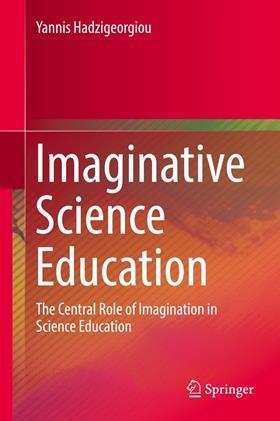Getting creative with science teaching
Imaginative science education
Yannis Hadzigeorgiou
Springer
2016 | 283pp | £66.99 (HB)
ISBN 9783319295244
I was enthused by the title of this book and had high hopes for what I might find inside. I agree with Yannis’s argument that there are roles for narrative, storytelling, creativity, aesthetics and wonderment in science education. This is a well-meaning, generously-intentioned book that reviews all possible relevant research across many decades, presenting multiple theoretical frameworks and offering copious quotes. Each section discusses research and possibilities for classroom activities.
I particularly liked the ‘wonder-full’ chapter, which proposes to challenge thinking with questions such as ‘Why is gravity so small a force?’ and ‘Is it possible that the world we live in is just an illusion and the real world is the one that physics teaches us?’. The creativity chapter however disappointingly drifts towards ‘write a play about the digestion of a cheese sandwich’, probably a better fit in the ‘Artistic’ section. Creativity as chance, logic, zeitgeist and genius offers a stronger line of argument, but is woefully disregarded.
Overall, this book does provide an information-seeking reader sufficient ideas to liven up their science lessons but it is not an easy read. The writing is dense, long-winded and over-packed with references. Over-lengthy footnotes also frequently disrupt flow with unnecessary detail, such as the fable of the two donkeys, Marie Curie’s life story and an explanation of Newton’s third law. Nine appendices offer historical insights, raw data from one of the author’s co-written papers, ideas from a teacher and students, mystery narratives, a planning framework and an ‘imaginative starter’ for introducing electricity. This is an ‘everything but the kitchen sink’ book if ever there was one.
A couple more gripes: why no index? And 99% of all scientific examples used are physics, chemistry barely gets a look-in and there is even less biology.
Yannis is right that imagination should be more central in science education. However, I imagined this book from its front cover to be quite different. I found pleasure and pain inside in equal measure. Low accessibility to the wealth of material this book contains will reduce the impact of the author’s intense interest and effort.
Purchase Imaginative science education from Amazon.co.uk










No comments yet